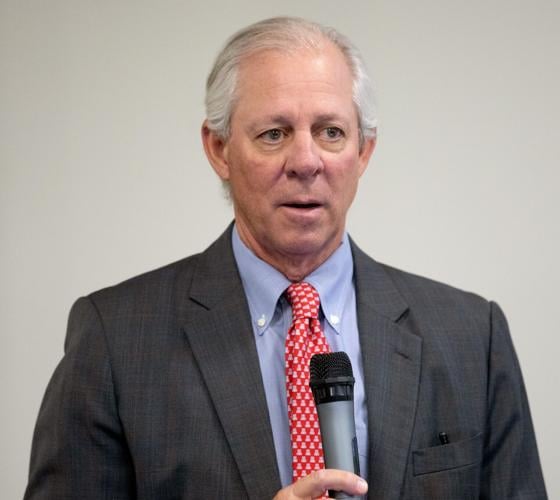The University of Arizona’s former Vice President of Business Affairs and Chief Financial Officer Lisa Rulney will serve in her new advisory position through the end of June, UA President Robert Robbins said Tuesday.
Rulney stepped down from the CFO role on Dec. 13 and now serves as senior advisor to business operations. She has retained the same salary of $506,325.
In an email to faculty and others, Robbins wrote that he wanted to “take a moment to correct the record.”

UA President Robert Robbins
“For clarity, Lisa’s position is advisory, and her role is solely to provide support to our interim CFO as he focuses on implementing the university’s financial action plan and managing the division’s broad operations,” Robbins wrote. “This transitional position is valuable to the university and ensures that the exchange of information and transfer of all leadership duties will support our success in the months and years to come.”
He said Rulney will have the position through June 30 to “ensure a minimally disruptive and well-informed transition.”
Many faculty and others blamed Rulney for the $240 million miscalculation in cash reserves that Robbins disclosed at an Arizona Board of Regents meeting in November. Rulney, who served as CFO since April 2019, oversaw the team responsible for financial projections and management.
Robbins told ABOR in a special December meeting that he had “accepted the resignation” of Rulney. He did not disclose that she had taken a new role within the university and retained her salary.
John Arnold, the executive director of ABOR, has taken over as UA’s chief financial officer and senior vice president of business affairs in an interim manner, and his work has been successful, according to Robbins.
“John has made great strides in understanding our university’s financial situation and working with senior leadership to map out effective, strategic solutions,” Robbins wrote in his Tuesday message. “He will continue meeting with college, department and unit leaders in the days to come, and we expect to have updated campus guidance by the end of the month.”
Despite Robbins’ assessment, a committee representing more than 250 department heads at the university sent a letter last week to Robbins, Arnold and others in senior leadership urging more faculty and staff involvement in the financial action plan during the UA’s “ongoing budget deficit”.
“Heads and directors are the hands-on managers of countless faculty, staff and student processes that help the university pursue its vision, meet its mission and live its values,” their memo stated. “We are often called upon to implement university policies in difficult, complex and idiosyncratic situations, such as this new financial landscape.”
Among other issues, the memo said department heads are concerned about the UA’s across-the-board hiring and compensation freeze.
They fear it will make it harder to grow programs and generate revenue, will “significantly impact” recruitment and retention of faculty and staff, add to the work burden and stress on directors, staff and faculty and “reflect poorly on the university’s reputation amongst our peers as we cancel searches that are already in process, creating significant ill will and making the recruitment of high-quality faculty much more difficult down the road.”
But Robbins continues to express optimism about the financial action plan.
“Finally, let me provide my sincere thanks to all across our institution who are working diligently to address our financial issues, to contribute to solutions and to keep our university strong and moving forward,” he wrote. “I am confident that together, as one Wildcat community, we can emerge from this period more focused and effective, and better positioned to fulfill our mission than ever before.”
University of Arizona President Robert Robbins gives a financial update: Dec 13






